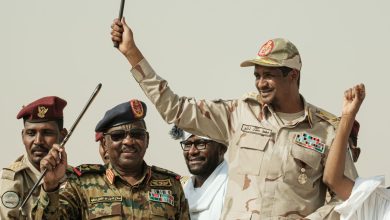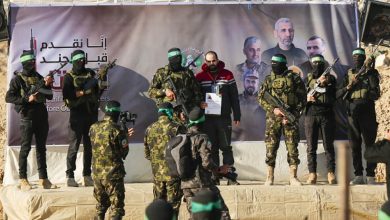Unveiling the Zionist “Hasbara” Project: Yasser Fouda Exposes Deceptive Tactics by Israel

Watan-The renowned Egyptian journalist Yasser Fouda has exposed aspects of Zionist activities aimed at distorting history and deceiving the world into accepting the Israeli narrative, similar to what the Zionists are currently doing to attempt to absolve themselves of their crimes against the people of Gaza.
Fouda recounted in an article published on his former Twitter account that while editing an investigation about the Israeli siege of the Church of the Nativity in Bethlehem in 2002, BBC suddenly aired a documentary presenting a peculiar version of the siege, according to false Israeli propaganda.
The Story of the Zionist ‘Hasbara’ Project
At that time, as he mentioned, he contacted the BBC, and they claimed not to have intellectual property rights. They directed him to the British company “October Films,” which also stated it lacked intellectual property rights. In turn, they referred him to an Israeli company, only to discover it was a fictitious company with fake names operating under the so-called Israel Defense Forces (IDF).
Yasser Fouda continued to highlight that this is just one example among thousands that can be observed within the context of Zionist activities to falsify history. This practice is known in Hebrew as הסברה or ‘hasbara,’ and the closest translation to English is ‘Explaining’ or ‘شرح’ in Arabic.
Fouda added that the word ‘hasbara’ may seem innocent on the surface, but it conceals serpents within. It was coined by Nahum Sokolow, one of the pioneers of the Zionist movement, before the end of the nineteenth century.
مشروع “خسبرة” الصهيوني
أثناء قيامنا بمونتاج تحقيقنا عن الحصار الإسرائيلي لكنيسة المهد في بيت لحم عام 2002، خرج تليفزيون BBC فجأةً بفيلم تسجيلي يروي رواية لحصار الكنيسة غريبة الأطوار. اتصلنا بال BBC قالوا إنهم لا يملكون الحقوق الفكرية. أحالونا إلى شركة “أفلام أكتوبر” البريطانية.… pic.twitter.com/xjpmbhhxlJ
— Yosri Fouda (@YosriFouda) December 13, 2023
Nahum Sokolow, who assumed the presidency of the World Zionist Congress in 1931, played a significant role in changing the name of the Palestinian town of Tel al-Rabi to Tel Aviv, among many other matters.
Today, the ‘Hasbara’ project has evolved into a complex initiative that Israelis prefer to describe as ‘public diplomacy,’ as highlighted by Yasser Fouda. He pointed out that the project has numerous branches that infiltrate various aspects of Israeli machinery, including military, diplomatic, cultural, and intellectual domains.
Notable among these branches is the IDF Spokesperson’s Unit, comprising over 400 officers along with a reserve force of over 1200 officers and soldiers. Starting from 2017, a significant number of officers have been dedicated to conducting ‘Hasbara’ on various social media platforms, in addition to those specializing in traditional newspapers and media.
There’s also the Coordination of Government Activities in the Territories (COGAT) unit, operating in Palestinian territories. The unit within the Prime Minister’s Office includes the government press office, public diplomacy management (Hasbara), and public information management.
The public diplomacy management (Hasbara) within the Ministry of Foreign Affairs encompasses a media unit, public relations unit, cultural affairs and scientific cooperation unit, religious affairs office, and relations with the diaspora.
Additionally, there are so-called ‘civil society’ organizations supporting Israeli goals, strategically and tactically coordinating with official plans.
The ‘Masbirim Israel’ campaign, established in 2010, aims to improve the image of Israelis globally through modern Hasbara techniques.




